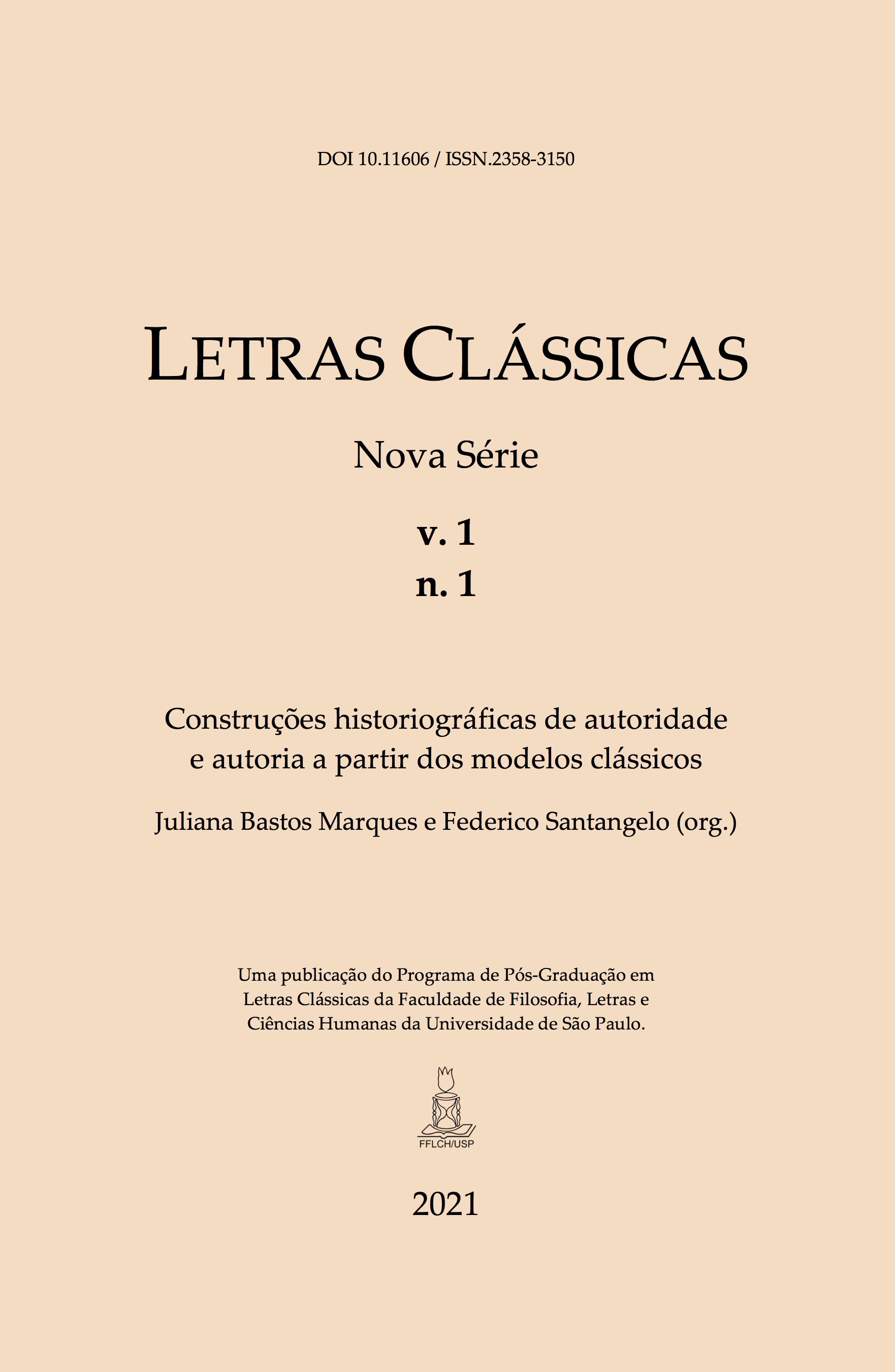Civic virtues, political activity and ciceronian Eloquence
DOI:
https://doi.org/10.11606/issn.2358-3150.v1i1p58-80Keywords:
política, eloquência, filosofia, honestum, utile, CíceroAbstract
This paper is concerned with the role played by ethics and rhetoric in the political life of the Late Roman Republic. More specifically, my aim is to investigate the relationship between civic virtues, politics and oratory as conceived in the rhetorical and philosophical treatises of Cicero. My central claim is that the exhibition of civic virtues by the orator/statesman is essential not only to the working of politics, but also to public deliberation. Focusing mainly on the philosophical works and deliberative speeches, I intend to define which civic qualities are employed in the discursive interaction between speaker and audience. Therefore, I seek to relate politics, philosophy and oratory and contribute to rethink the process of interaction between speaker and audience in the context of change of social organization.
Downloads
References
Barber, Kimberly Anne. 2004. Rhetoric in Cicero’s Pro Balbo – an Interpretation. London and New York Routledge.
Clark, Albertus Curtis. 1908. M. Tulli Ciceronis Orationes. Oxford: Typographeo Clarendoniano (Scriptorum Classicorum Bibliotheca Oxoniensis).
Davidson, Jorge M. 2002. “Direito e ideologia na Roma tardo-republicana”. Phoînix, 8.1: 197-209.
Gardner, R. 2001. Cicero. Pro Sestio. In Vatinium. Cambridge, MA and London: Harvard University Press (Loeb Classical Library).
Guérin, C. 2011. Persona. L’élaboration d’une notion rhétorique au Ier. Siècle av. J.-C. Vol. II. Paris: Vrin.
Hubbell, H. M. 2006. Cicero. De Inventione. De Optimo Genere Oratorum. Topica. With Translation and Commentary. Cambridge, MA and London: Harvard University Press (Loeb Classical Library). Júnior, Manuel Alexandre; Alberto, Paulo Farmhouse & Pena, Abel do Nascimento. 2012. Aristóteles. Retórica. São Paulo: Martins Fontes.
Kirby, John T. 1990. The Rhetoric of Cicero’s Pro Cluentio. Amsterdam: J. C. Gieben.
Miller, Walter. 1928. Cicero. De Officiis. London: William Heinemann Ltd/New York: G. R. Putnam’s Sons. Rackham, H. 2004. Cicero. De Oratore. Book 3. De Fato. Paradoxa Stoicorum. De Partitione Oratoria. With Translation and Commentary. Cambridge, MA and London: Harvard University Press.
Rackham, H. 2005. Aristotle. Politics. With Translation and Commentary. Cambridge, MA and London: Harvard University Press. Santos, Gilson Charles dos. 2018. “Ēthos do orador e as práticas públicas de argumentação na república romana tardia”. Roda da Fortuna. Revista Eletrônica sobre Antiguidade e Medievo, 7.2: 41-59.
Shackleton Bailey, D. R. 2009. Cicero. Philippics 1-6. With Translation and Commentary. Cambridge, MA and London: Harvard University Press. Shackleton Bailey, D. R. 2009.
Cicero. Philippics 7-14. With Translation and Commentary. Cambridge, MA and London: Harvard University Press.
Sutton, E. W. & Rackham, H. 1948. Cicero. De Oratore. Books 1-2. With Translation and Commentary. Cambridge, MA and London: Harvard University Press (Loeb Classical Library).
Wolff, F. 1999. Aristóteles e a política. Trad. Lygia Araújo Watanabe. São Paulo: Discurso Editorial.
Zetzel, James E. G. 1995. Cicero. De Re Publica. Selections. Cambridge: Cambridge University Press.
Downloads
Published
Issue
Section
License
Copyright (c) 2021 Gilson Charles dos Santos

This work is licensed under a Creative Commons Attribution-NonCommercial 4.0 International License.
Autores que publicam nesta revista concordam com os seguintes termos:
- Autores mantém os direitos autorais e concedem à revista o direito de primeira publicação, com o trabalho licenciado simultaneamente sob uma Licença Creative Commons Attribution permitindo o compartilhamento do trabalho com reconhecimento da autoria do trabalho e publicação inicial nesta revista.
- Autores têm autorização para assumir contratos adicionais separadamente, para distribuição não-exclusiva da versão do trabalho publicada nesta revista (ex.: publicar em repositório institucional ou como capítulo de livro), com reconhecimento de autoria e publicação inicial nesta revista.
- Autores têm permissão e são estimulados a publicar e distribuir seu trabalho online (ex.: em repositórios institucionais ou na sua página pessoal) a qualquer ponto antes ou durante o processo editorial, já que isso pode gerar alterações produtivas, bem como aumentar o impacto e a citação do trabalho publicado (Veja O Efeito do Acesso Livre).


